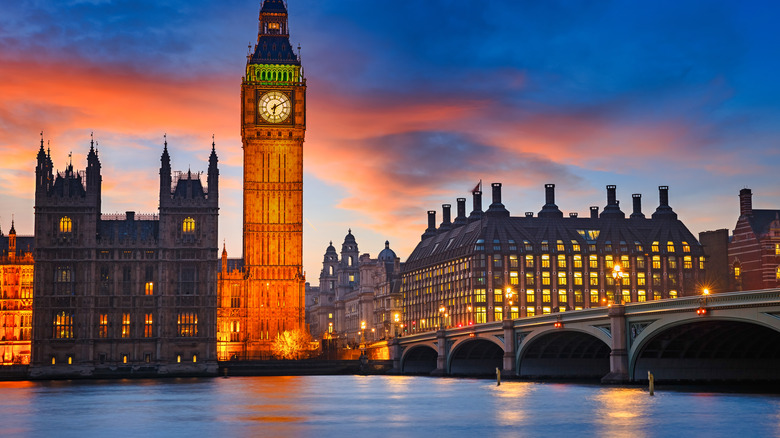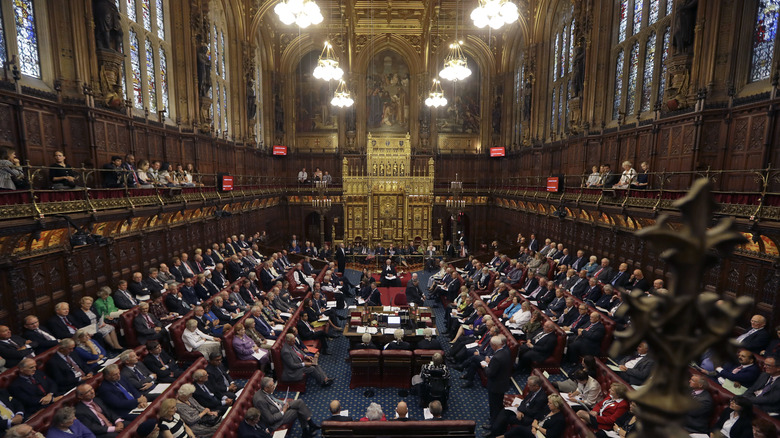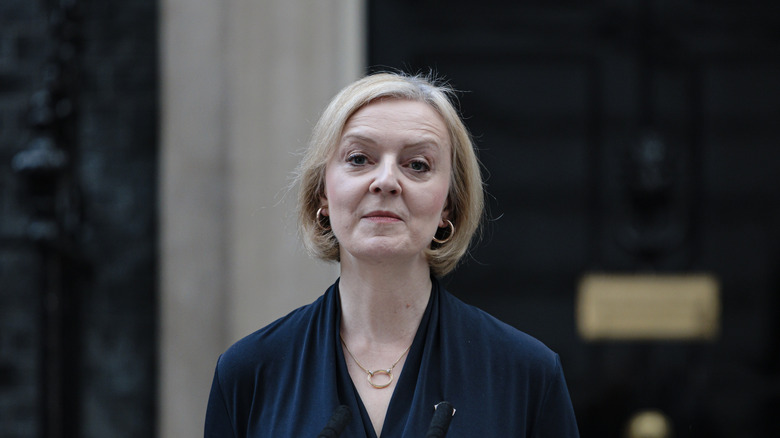What Are Prime Minister's Resignation Honours And How Do They Work?
Liz Truss, who was appointed by Queen Elizabeth II as the United Kingdom's Prime Minister on September 6, according to Reuters –- just two days before the Queen died -– resigned abruptly on October 20. As NBC News reports, her resignation follows an ill-informed economic plan that caused the value of the British pound to plummet. The night before her resignation members of Parliament were in rare form, with the interior minister abruptly quitting along with reports of voting "confusion" on the floor, "manhandling" and heated arguments between lawmakers, according to the CBC.
Though her tenure was remarkably short -– by far the shortest of any PM in British history -– she is still allowed to request, for herself or for anyone else, certain honorifics, including peerage. These "Resignation Honours," as they're called, mean considerably less now than they did centuries ago, but nevertheless, those who are given a peerage do get an automatic seat in the House of Lords, according to Politics Teaching. As Debrett's reports, gone are the days when peers wielded substantial political power, however, according to UK Parliament, the role of the House of Lords today is to help make laws, hold the government accountable via Q&A sessions and debates, and to investigate public policy.
What Even Are Peerages And Resignation Honours?
As Debrett's explains, the centuries-old system of peerages in the United Kingdom more or less works like this: Originally, those who earned the favor of the monarch –- initially through swearing fealty to a king or queen in exchange for a land grant or a fiefdom –- will be given one of five titles. From the highest ranking order they are: duke, marquess, earl, viscount, and baron.
For centuries, a peerage automatically came with a seat in the House of Lords, and these titles were inherited, but only by the oldest male heir. The result of this was that, for centuries, only men were admitted to the House of Lords. Further still, a person could hold a seat in the House of Lords for no reason other than that he was the direct descendant of someone who could have been awarded that seat centuries before.
Those days are gone; since 1958, most peerages have become life peerages, which is to say, they were appointed to the House of Lords, and those who are appointed cannot pass their seats on to their children. However, according to the Electoral Reform Society, there are still 92 seats held for hereditary peers. Per UK Parliament, there are currently 757 members of the House of Lords.
The designee is given one of several honors in the British Honours system, which means they'll be able to refer to themselves by that title for the remainder of their life, and they'll be bestowed a medal as well.
The PM And Resignation Honors And Peerages
What does this have to do with Liz Truss? According to The Gazette, the outgoing Prime Minister has, with a few exceptions, submitted a list of peerages and Resignation Honours they want to be bestowed, and Truss will probably do the same.
Since 1895, The Gazette has published the names of men and women nominated for Resignation Honours and peerages when the prime minister leaves office, although on a few occasions the recipient wasn't granted a completely new peerage but instead "promoted," as it were, to a higher-ranking peerage. A few prime ministers have elected not to draw up such a list, for "various reasons," as the newspaper describes it.
Some such lists have drawn controversy. For example, in 1976 departing Prime Minister Harold Wilson nominated wealthy businessmen, some of whom had political ideas contrary to those of Wilson's party, for various peerages. Similarly, Tony Blair had drawn up a draft, of sorts, but because of a "Cash for Peerages" scandal he never actually submitted a list. As of October 20, 2022, it remains unclear when, or even if, Liz Truss will submit her list of recommendations for Resignation Honours.


